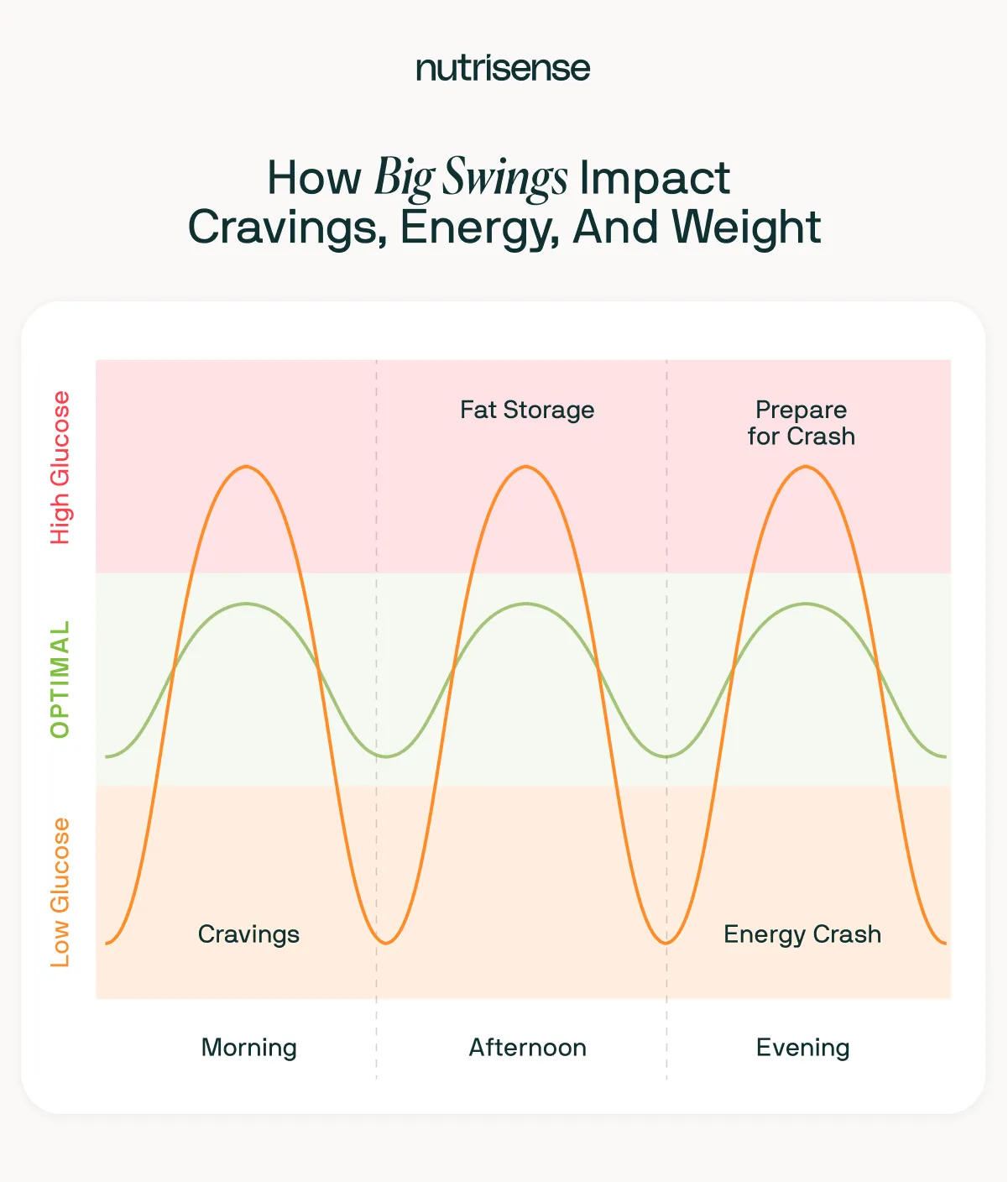Science - About Peter Pan's Theory
You might be asking: "Why blood glucose? What does sugar have to do with my health?" It's simple: many negative effects on health (from small problems like fat gain or energy crashs to diseases like diabetes) stem from volatile glucose. It all has to do with glucose curves. When you eat food, carbohydrates are coverted into glucose, which is sent through your blood. This is when your blood glucose rises, making you feel energized and gives you that "sugar high". Over time, this glucose is consumed by your cells using insulin and the curve drops. However, many don't know that sugar is an extremely dangerous and sinister killer over time, especially simple carbohyrates. Mortality rate is highly correlated to glucose volatility– but why?

Hyperglycemia
When the glucose curve spikes above a certain normal amount, your body can't use it all and instead converts it into stored fat. Hyperglycemia also induces oxidative damage because your mitochondria can't process it all fast enough, damaging tissues and organs over time. As seen under "Disease", poor metabolic function due to glucose volatility is dangerous and deadly.
Hypoglycemia
These "spikes" of glucose eventually crash to abnormally low glucose, which you experience as an energy crash and feeling awful. Each day, poor management of blood glucose causes fat gain and poor energy. As you get older, hypoglycemia can induce dizziness, confusion, and even fainting.
Disease
Volatile, spiky glucose curves can cause you to develop diseases over time: your cells will get progressively more stressed while trying to lower abnormally high glucose curves, causing kidney disease, vision problems, endothelial dysfunction, etc. Blood vessels and the pancreas are especially vulnerable, with one increasing blood pressure and the other losing beta cells and failing to produce insulin (causing diabetes). This is why eating sugar is "bad for you": spiky glucose curves is slowly destroying your body's ability to process more. Arguably worse, these spikes also cause advanced glycation end-products (AGEs) to form in your blood. AGEs are any biological compound that has additional glucose molecules attached to it, making it uselessly large. AGEs forgo their usual function to instead stuff up the bloodstream and build plaque, which eventually causes heart disease. As cardiovascular disease is still the number one worldwide killer, it is undeniable how important proper glucose management is.
Learn more about the importance of maintaining healthy blood glucose curves here:
- Mood and Blood Sugar
- Postprandial Glucose Spikes, an Important Contributor to Cardiovascular Disease in Diabetes?
- Glycemic variability and cardiovascular disease in patients with type 2 diabetes
- Molecular Mechanisms of Glucose Fluctuations on Diabetic Complications
- Long-term Glycemic Variability and Risk of Adverse Outcomes: A Systematic Review and Meta-analysis
- Long-term variability of glycemic markers and risk of all-cause mortality in type 2 diabetes: the Look AHEAD study
- Glucose variability: a new risk factor for cardiovascular disease